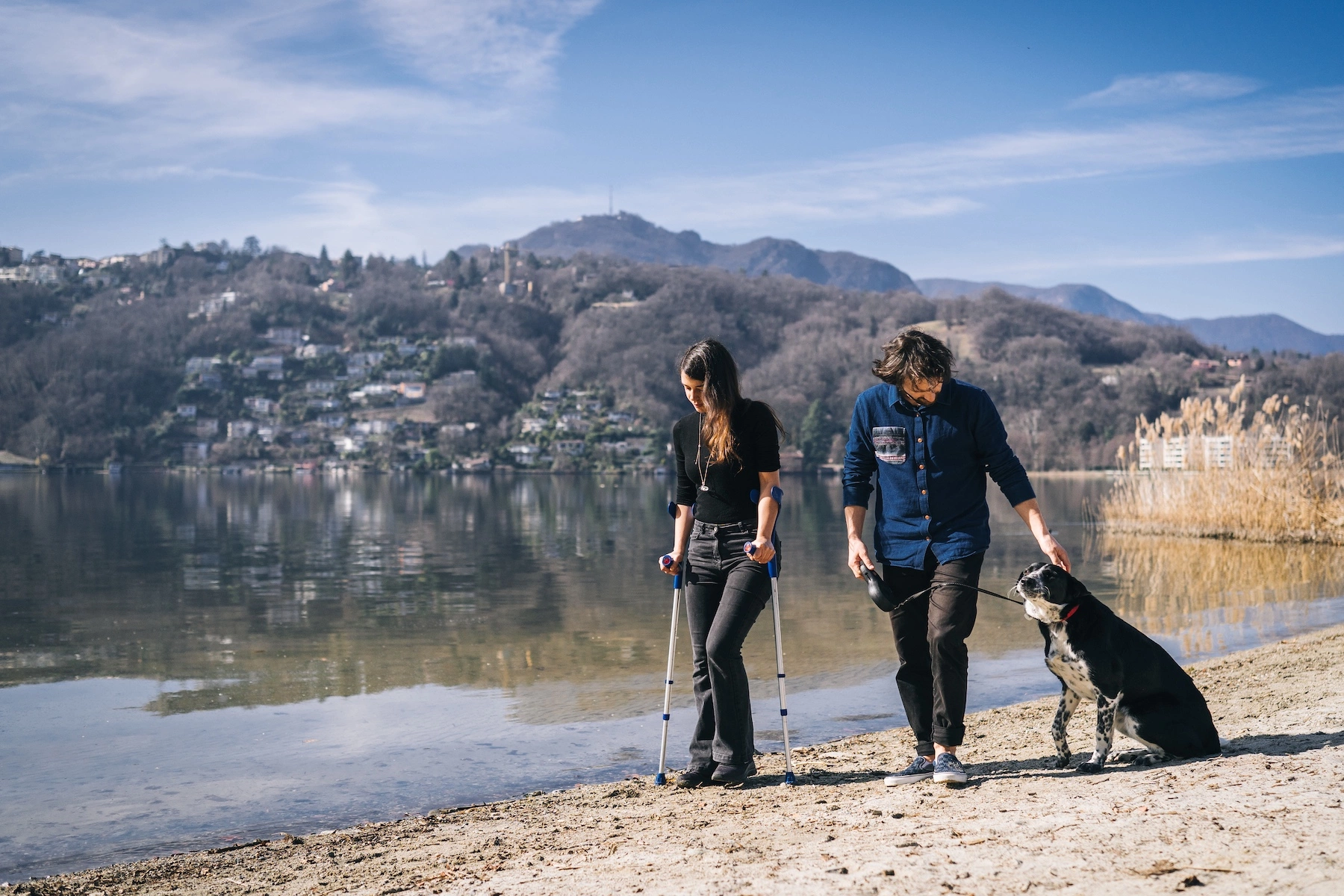Fortunately for expats living in Switzerland, the country’s social security system offers a broad spectrum of protection for all residents living and working there. This also includes their dependent families. This covers everything from pensions and unemployment benefits to maternity and childcare allowances, and more. But whether you are looking to start your own business or find a job in Switzerland, it’s always good to be prepared and know exactly what to expect upon arrival.
With this in mind, this helpful guide explains everything you need to know about Swiss social security, including the following:
- Social security in Switzerland
- Receiving social security in Switzerland as an expat
- Unemployment benefits in Switzerland
- Maternity, paternity, and parental benefits, and family allowances
- Pension insurance in Switzerland
- Health insurance in Switzerland
- Social security for freelancers and the self-employed in Switzerland
- Social security for part-time workers, low earners, and students
- Private social security options in Switzerland
- Useful resources
Social security in Switzerland
Switzerland has a close-knit network of social insurance provisions, which covers the following five categories:
- pensions: old-age, survivors, and invalidity insurance (three-pillar system)
- healthcare benefits
- maternity, paternity, and parental benefits
- unemployment benefits
- family allowances
Conveniently, these forms of social insurance apply to expats living and working in Switzerland, as well as their families. That said, to gain access to them, foreign nationals must take out Swiss health insurance for both themselves and their family members. They must do this within three months of arriving or starting work in Switzerland.

Importantly, there is no nationwide Swiss social security scheme. Instead, this is organized between the federal and individual cantonal authorities. As a result, social security varies according to where you live in Switzerland. Furthermore, while cantons handle unemployment insurance and family allowances, all other forms of social security are the responsibility of the Federal Office for Social Insurance (FSIO).
When applying for any form of Swiss social security, you will need to have your social security number handy. You can find this on your health insurance card or your personal insurance certificate. The Swiss OASI number (Old-Age and Survivors’ Insurance number), or AHV-Nr., is also widely used as a personal identification number by all federal registers; including education and social security. This is 13 digits long and provides a lifelong, anonymous identification unique to each person.
You can also use this number to apply for the disability pension and the state pension. You can claim the latter from the age of 65 (for men) and 64 (for women). However, this is on the condition that you have been contributing to the scheme for at least a year. You can find some of the application forms on the AHV website.
Who is eligible for social security in Switzerland?
Fortunately, anyone living and working in Switzerland is eligible to apply for Swiss social security. However, to access it, foreign nationals must take out these insurances for their families with a Swiss health insurance company; and no later than three months after arriving or starting work in Switzerland.
What are the options if you are not eligible for social security in Switzerland?
If you are currently not eligible for social security in Switzerland, there are options. In fact, more than 270,000 people in Switzerland receive social assistance and this is distributed on the cantonal level. Essentially, anyone who is a Swiss citizen or has a Swiss residence permit can receive welfare in Switzerland. Asylum seekers and refugees are also eligible.

In case you don’t fall into any of these categories, though, you can also apply for emergency aid. However, if you have already received social security benefits in the past or still have significant assets, you are not eligible. Pensioners who need financial help, on the other hand, can apply for supplementary benefits. If none of these situations applies to you, however, then you may want to explore your private social security options.
Who has to register for social security in Switzerland?
In general, any employed Swiss national and citizen must contribute to the Swiss social security system. This applies even if they are a resident of another country, or if the head office of the firm or employer they work for is located in another country.
Receiving social security in Switzerland as an expat
Fortunately for expats, Switzerland ranks as the number one country in Numbeo’s Quality of Life Index in 2021. It scores particularly high for safety and healthcare, making it an appealing place to call home; especially for those with children. Furthermore, with the efficient Swiss social security system in place to enable a better lifestyle, it’s no wonder that so many expats choose to work and settle there.

Below is a summary of what you need to know about receiving Swiss social security as an expat.
EU/EFTA nationals in Switzerland
Essentially, employees within the EU only have to pay social security contributions in one country and this depends on their country of residence and place of work. That said, there are ways to transfer your pension to and from Switzerland if you choose to live elsewhere. However, this all depends on your pension provider and can result in a hefty tax implementation.
Non-EU/EFTA nationals in Switzerland
Similar rules apply for Non-EU/EFTA citizens or residents if that country has a bilateral social security agreement with Switzerland. Currently, there are Swiss social security agreements in place with 44 other countries, including the following:
- Australia
- Brazil
- Canada
- Chile
- Japan
- North Macedonia
- Philippines
- United States of America
- Uruguay
However, there are some limitations on benefits and you will likely need to investigate this further, depending on your individual circumstances. Notably, any income generated from activities in countries that don’t have bilateral or multinational social security agreements with Switzerland is subject to Swiss social security contributions. This can result in a division or even potential overlapping of social security obligations.
One important thing to be aware of is that social security contributions and terms of employment for foreign workers must be in accordance with the region, profession, and sector. Swiss employers also tend to prioritize non-EU/EFTA individuals if they are highly qualified; such as senior managers, specialists, or highly-skilled professionals. Therefore, if you are looking for a job in Switzerland, you will likely discover that you will need to have several years of professional experience and qualifications under your belt.
Unemployment benefits in Switzerland
Unemployment benefits in Switzerland cover a range of issues, from losing your job to insolvency on the part of the employer. Luckily, the cantonal immigration and labor market authorities provide a lot of support in case of unemployment. In fact, short-stay permit holders can even remain in Switzerland for up to six more months after becoming unemployed, giving them time to find another job.

Furthermore, after five days of being unemployed, you can claim 70% of your average earnings over the previous six months to a year. To qualify, you must have earned at least CHF 500 per month with wages capped at CHF 10,500 per month. Applicants must also live in Switzerland, have a work permit, and have been in employment and paying unemployment contributions for 12 months in the two years before requesting benefits. They must also show that they are actively looking for work at this time.
Who can get unemployment benefits in Switzerland?
Typically, if you live in Switzerland, hold a valid Swiss residence or settlement permit, and meet the requirements, then you can receive unemployment benefits. Furthermore, your nationality doesn’t affect being able to apply for the benefits. In general, the benefit starts after five days of unemployment. In rare cases, this period may shorten or extend depending on the circumstances, however, it is important to contact the authorities as soon as possible. This also applies to shortened working hours.
Unemployment benefit contributions in Switzerland
The unemployment benefit in Switzerland is calculated based on your last salary and is paid as daily allowances, five times a week. In principle, this means that you will receive 80% of your average pay over the last six months, up to a salary of CHF 12,350 per month. Individuals under 25 years of age are entitled to 70% of their average pay over the last six months, up to a maximum salary of CHF 12,350 per month. If you have worked and paid social security contributions for 12 months over the past two years, then you are entitled to 260 days’ worth of unemployment allowance. For individuals who are childless and under 25, this would be 200 days.
How to claim unemployment benefits in Switzerland
To claim unemployment benefits in Switzerland, you first need to register with the regional unemployment office (RAV/ORP/URC). You will then be assigned a case manager with whom you can arrange to meet. When you attend your appointment, make sure to bring the following documents:
- An OASI-IV insurance certificate or health insurance card
- Personal identification
- Residence certificate or a residence confirmation from your commune of residence
- A ‘Registration at the commune of residence’ form
- Permanent residence permit or a foreign national identity card
After you have met your new case manager, they will provide you with support while you look for a new job. During this time, you will have to check in regularly with your job counselor to prove that you have been actively applying for jobs. You can also work on updating your resume and perhaps attend courses and workshops to sharpen your job skills.
You can find more information about unemployment benefits in the various online forms, or by visiting the regional placement offices or contacting the employment fund.
Maternity, paternity, and parental benefits, and family allowances
All employed mothers (including those who are self-employed or work in their husband’s business) are entitled to paid maternity leave in Switzerland. As of 2021, fathers can also apply for paternity leave. You can read more about this in our guide to having a baby in Switzerland.

Women can claim maternity leave as long they are insured under AHV for nine months prior to the birth and have worked for at least five months during pregnancy. Maternity leave begins the day the child is born and lasts up to 98 days. Employees can’t be dismissed during this time. Mothers will receive 80% of their salary in the form of a daily allowance with a maximum of CHF 196 a day. You can find out more by contacting your cantonal compensation office and reading the online forms.
Family allowances
People who are living and working (earning at least CHF 592 per month) in Switzerland can apply for family allowances. They can benefit from child and education allowances, and sometimes adoption and birth allowances. Children up to 16 years old can also benefit from at least CHF 200 a month. If you have children aged between 16 and 25, you are also entitled to an education allowance of at least CHF 250 a month per child. It is important to note, however, that these allowances are not automatic.
You can apply for family allowances through your employer, and contact your cantonal compensation office to find out more.
Pension insurance in Switzerland
The Swiss pension system is comprised of three basic levels of pensions. Expats have various tax-reporting requirements, however, all employees, self-employed, and anyone unemployed over the age of 20, must participate in the OASI/DI scheme until they reach retirement age.

In Switzerland, this is currently 64 for women and 65 for men. That said, this doesn’t mean that you have to retire at these ages – it’s up to you when you feel ready.
Health insurance in Switzerland
Unsurprisingly, Switzerland is one of the best countries in the world for its outstanding healthcare system. It combines public, subsidized private, and completely private healthcare systems. As a result, the system enables an extensive network of expert doctors and Swiss hospitals, top-notch medical facilities, and no waiting lists. However, this all comes at a price.
If you live and work in Switzerland, then it is compulsory to take out insurance no matter what your nationality is. Notably, this applies even if you are working in Switzerland for only three months. Unlike other European countries, the Swiss healthcare system is not tax-based or financed by employers. Instead, it is paid by the individual through contributions to Swiss health insurance schemes. Importantly, this can be topped up with supplementary private health insurance.
Social security for freelancers and the self-employed in Switzerland
If you are a freelancer or looking to set up a business in Switzerland, then it’s worth exploring the insurance benefits on offer. Notably, both self-employed individuals and freelancers must take out their own social insurance. Generally, self-employed people are also subject to the social security system of their country of residence. Therefore, there are two main types of social insurance for the self-employed. You can find more detailed information about this on SECO’s SME portal.
Social security for part-time workers, low earners, and students
Part-time workers, low earners, and students are still able to access Swiss social security benefits. The contributions are split equally between you and your employer and come from your gross salary.

Foreign students living in Switzerland, however, only pay a flat fee of CHF 480 per year from the age of 20 up until the age of 25. That said, the state offers subsidies to ensure that everyone can afford basic health insurance, and these are based on eligibility criteria set by each canton.
Private social security options in Switzerland
The third pillar of Swiss social security is to opt for private schemes which are protected by law and can even offer tax advantages. You can apply for private insurance if you don’t qualify for the general social security scheme in Switzerland. Notably, Swiss residents spend a higher amount on insurance in general than the EU average. As a result, there are a number of private Swiss insurance companies to choose from.
Many residents in Switzerland take out various optional insurances to suit their individual needs. When you choose your Swiss insurance provider, just must make sure that they have a license from the Swiss Financial Market Authority (FINMA). You can also search for insurance companies in Switzerland in our directory.
Useful resources
- Information Centre OASI/DI – provides information on social insurance types, leaflets, and forms, as well as direct contact details
- Information Centre OASI/DI – a list of cantonal compensation offices
- AVS/AI Information Centre – Social Security in Switzerland brochure
- European Commission – provides information on your social security rights when moving within Europe







